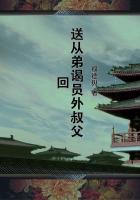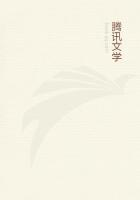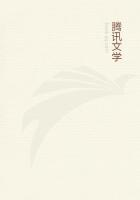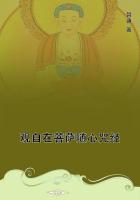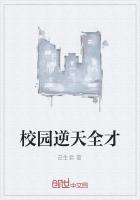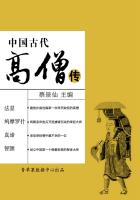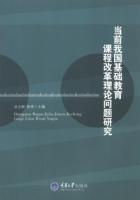This is what I gathered. That in that country if a man falls into ill health, or catches any disorder, or fails bodily in any way before he is seventy years old, he is tried before a jury of his countrymen, and if convicted is held up to public scorn and sentenced more or less severely as the case may be. There are subdivisions of illnesses into crimes and misdemeanours as with offences amongst ourselves--a man being punished very heavily for serious illness, while failure of eyes or hearing in one over sixty-five, who has had good health hitherto, is dealt with by fine only, or imprisonment in default of payment. But if a man forges a cheque, or sets his house on fire, or robs with violence from the person, or does any other such things as are criminal in our own country, he is either taken to a hospital and most carefully tended at the public expense, or if he is in good circumstances, he lets it be known to all his friends that he is suffering from a severe fit of immorality, just as we do when we are ill, and they come and visit him with great solicitude, and inquire with interest how it all came about, what symptoms first showed themselves, and so forth,--questions which he will answer with perfect unreserve; for bad conduct, though considered no less deplorable than illness with ourselves, and as unquestionably indicating something seriously wrong with the individual who misbehaves, is nevertheless held to be the result of either pre-natal or post-natal misfortune.
The strange part of the story, however, is that though they ascribe moral defects to the effect of misfortune either in character or surroundings, they will not listen to the plea of misfortune in cases that in England meet with sympathy and commiseration only.
Ill luck of any kind, or even ill treatment at the hands of others, is considered an offence against society, inasmuch as it makes people uncomfortable to hear of it. Loss of fortune, therefore, or loss of some dear friend on whom another was much dependent, is punished hardly less severely than physical delinquency.
Foreign, indeed, as such ideas are to our own, traces of somewhat similar opinions can be found even in nineteenth-century England.
If a person has an abscess, the medical man will say that it contains "peccant" matter, and people say that they have a "bad"arm or finger, or that they are very "bad" all over, when they only mean "diseased." Among foreign nations Erewhonian opinions may be still more clearly noted. The Mahommedans, for example, to this day, send their female prisoners to hospitals, and the New Zealand Maories visit any misfortune with forcible entry into the house of the offender, and the breaking up and burning of all his goods.
The Italians, again, use the same word for "disgrace" and "misfortune." I once heard an Italian lady speak of a young friend whom she described as endowed with every virtue under heaven, "ma,"she exclaimed, "povero disgraziato, ha ammazzato suo zio." ("Poor unfortunate fellow, he has murdered his uncle.")On mentioning this, which I heard when taken to Italy as a boy by my father, the person to whom I told it showed no surprise. He said that he had been driven for two or three years in a certain city by a young Sicilian cabdriver of prepossessing manners and appearance, but then lost sight of him. On asking what had become of him, he was told that he was in prison for having shot at his father with intent to kill him--happily without serious result.
Some years later my informant again found himself warmly accosted by the prepossessing young cabdriver. "Ah, caro signore," he exclaimed, "sono cinque anni che non lo vedo--tre anni di militare, e due anni di disgrazia," &c. ("My dear sir, it is five years since I saw you--three years of military service, and two of misfortune")--during which last the poor fellow had been in prison.
Of moral sense he showed not so much as a trace. He and his father were now on excellent terms, and were likely to remain so unless either of them should again have the misfortune mortally to offend the other.
In the following chapter I will give a few examples of the way in which what we should call misfortune, hardship, or disease are dealt with by the Erewhonians, but for the moment will return to their treatment of cases that with us are criminal. As I have already said, these, though not judicially punishable, are recognised as requiring correction. Accordingly, there exists a class of men trained in soul-craft, whom they call straighteners, as nearly as I can translate a word which literally means "one who bends back the crooked." These men practise much as medical men in England, and receive a quasi-surreptitious fee on every visit.
They are treated with the same unreserve, and obeyed as readily, as our own doctors--that is to say, on the whole sufficiently--because people know that it is their interest to get well as soon as they can, and that they will not be scouted as they would be if their bodies were out of order, even though they may have to undergo a very painful course of treatment.
When I say that they will not be scouted, I do not mean that an Erewhonian will suffer no social inconvenience in consequence, we will say, of having committed fraud. Friends will fall away from him because of his being less pleasant company, just as we ourselves are disinclined to make companions of those who are either poor or poorly. No one with any sense of self-respect will place himself on an equality in the matter of affection with those who are less lucky than himself in birth, health, money, good looks, capacity, or anything else. Indeed, that dislike and even disgust should be felt by the fortunate for the unfortunate, or at any rate for those who have been discovered to have met with any of the more serious and less familiar misfortunes, is not only natural, but desirable for any society, whether of man or brute.

